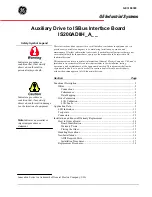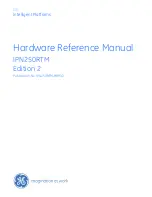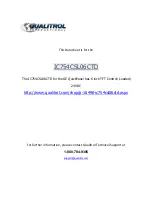
Flexible static memory controller (FSMC)
RM0365
229/1080
DocID025202 Rev 7
14.3 AHB
interface
The AHB slave interface allows internal CPUs and other bus master peripherals to access
the external memories.
AHB transactions are translated into the external device protocol. In particular, if the
selected external memory is 16- or 8-bit wide, 32-bit wide transactions on the AHB are split
into consecutive 16- or 8-bit accesses. The FMC Chip Select (FMC_NEx) does not toggle
between the consecutive accesses except in case of access mode D when the extended
mode is enabled.
The FMC generates an AHB error in the following conditions:
•
When reading or writing to an FMC bank (Bank 1 to 4) which is not enabled.
•
When reading or writing to the NOR Flash bank while the FACCEN bit is reset in the
FMC_BCRx register.
•
When reading or writing to the PC Card banks while the FMC_CD input pin (Card
Presence Detection) is low.
The effect of an AHB error depends on the AHB master which has attempted the R/W
access:
•
If the access has been attempted by the Cortex™-M4 with FPU CPU, a hard fault
interrupt is generated.
•
If the access has been performed by a DMA controller, a DMA transfer error is
generated and the corresponding DMA channel is automatically disabled.
The AHB clock (HCLK) is the reference clock for the FMC.
14.3.1
Supported memories and transactions
General transaction rules
The requested AHB transaction data size can be 8-, 16- or 32-bit wide whereas the
accessed external device has a fixed data width. This may lead to inconsistent transfers.
















































